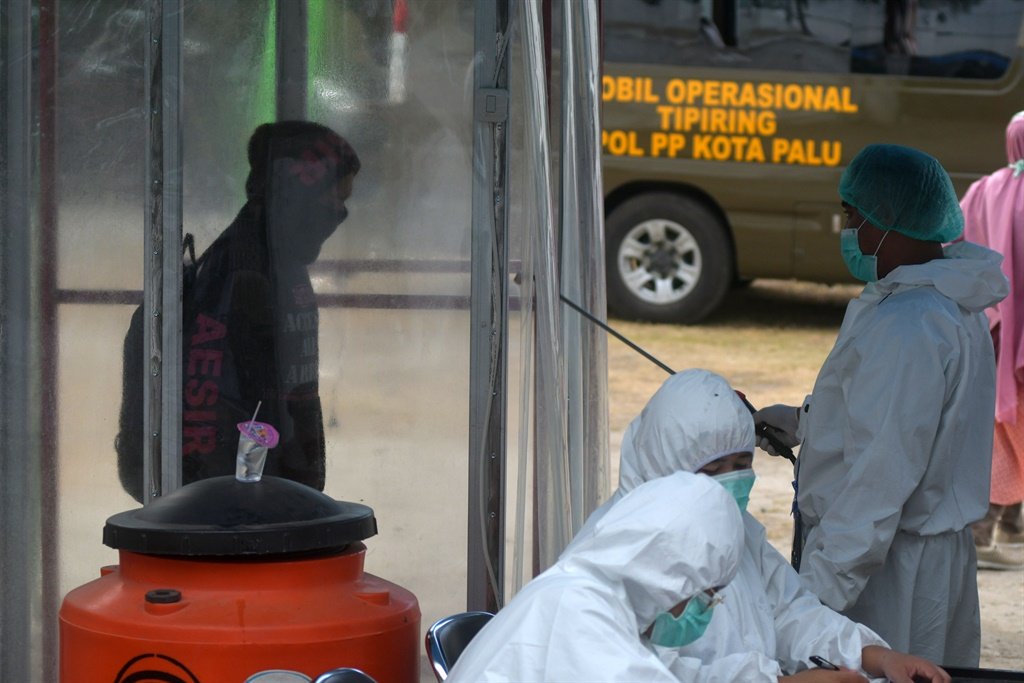

Keeping you up to date on the latest novel coronavirus
(Covid-19) news from around the world.
FOLLOW LIVE | ‘The people are hungry’ – Chaos in Macassar as residents burn debris, target local supermarket
Global coronavirus deaths top 170 000 – AFP tally
Paris
– The coronavirus pandemic has killed more than 170 000 people globally, close
to two-thirds of them in hardest-hit Europe, according to an AFP tally on Tuesday
at 09:35 (GMT).
In total, 170 226 people have
died from the virus around the world, including 106 737 in Europe. With 42 364
deaths, the United States has the highest mortality rate, followed by Italy with
24 114 fatalities and Spain’s 21 282. France has 20 265 deaths and Britain 16 509.
There are 2 483 086 recorded
cases around the world, though the number of actual infections is believed to
be higher since many countries are only testing the most serious cases.
The figures have been compiled by
AFP from national authorities and information from the World Health Organisation
(WHO).
– AFP
Singapore extends coronavirus curbs as cases surge
Singapore – Singapore on Tuesday extended restrictions to
fight the coronavirus until early June, the city-state’s leader said, as cases
surged past 9 000 due to a growing number of infections among migrant workers.
Health
authorities reported 1 111 cases on Tuesday taking the total to 9 125, with the
vast majority of new infections in foreign worker dormitories, which have
become the epicentre of the city’s outbreak.
Prime Minister Lee Hsien Loong
said that restrictions – which include closures of businesses and schools, and
asking people to stay home – would be extended to 1 June. They were imposed at
the start of April and had originally been due to end on 4 May.
“Many will be disappointed
by the extension,” said Lee in a televised address, acknowledging that
businesses and workers were “hurting greatly”. “But I hope you
understand that this short-term pain is to stamp out the virus, protect the
health and safety of our loved ones, and allow us to revive our economy.”
– AFP
Spain’s Pamplona bull-run festival called off over virus
Madrid
– Spain’s best-known bull running festival in the northern town of Pamplona,
held annually between 6-14 July, has been cancelled this year due to the
coronavirus pandemic, city hall said on Tuesday.
Over one million people attend
the centuries-old San Fermin celebration, which sees half-tonne fighting bulls
chase hundreds of daredevils, many wearing traditional white shirts and
scarves, though the narrow streets of the city each morning.
– AFP
Indonesia locks virus quarantine violators in ‘haunted house’
Sragen
– Fed up with people breaking virus quarantine rules, one Indonesian politician
has decided to scare rulebreakers straight by locking them in a “haunted
house”.
Sragen regency head Kusdinar
Untung Yuni Sukowati says she issued the unusual edict this week to deal with
an influx of people to the area after lockdowns in the capital Jakarta and
other major cities.
Some newcomers, however, weren’t
respecting orders that they isolate themselves for 14 days to prevent the
spread of coronavirus across the region on Indonesia’s densely populated Java
island.
So Sukowati instructed
communities to repurpose abandoned houses that were feared to be haunted – tapping
widespread beliefs in the supernatural, which play a key role in Indonesian
folklore. Five people have been tossed into Sragen’s spooky jails so far.
“If there’s an empty and haunted house in the village,
put people in there and lock them up,” Sukowati told AFP on Tuesday when
asked about the rule.
– AFP
Time short for avoiding African ‘food crisis’ – UN’s IFAD
Paris
– Africa must move swiftly to prevent a looming food crunch caused by
coronavirus disruption for small-scale producers, the head of a UN agency says.
“People in lockdown no
longer have access to public transport systems, to seeds, to informal markets,
to sell their goods or buy inputs such as seed and fertiliser,” said
Gilbert Houngbo, head of the International Fund for Agricultural Development
(IFAD).
“The closure of major
highways and bans on exports could also harm food systems,” he told AFP in
an interview.
“The
breaking of logistical chains is one of the biggest problems to resolve,”
he said. “We have to act right now to prevent a health crisis from
becoming a food crisis.”
IFAD specialises in help for poor
rural populations, seeking to strengthen food security and employment through
low-interest loans and grants.
– AFP
Stay healthy and entertained during the national lockdown. Sign up for our Lockdown Living newsletter. Register and manage your newsletters in the new News24 app by clicking on the Profile tab
